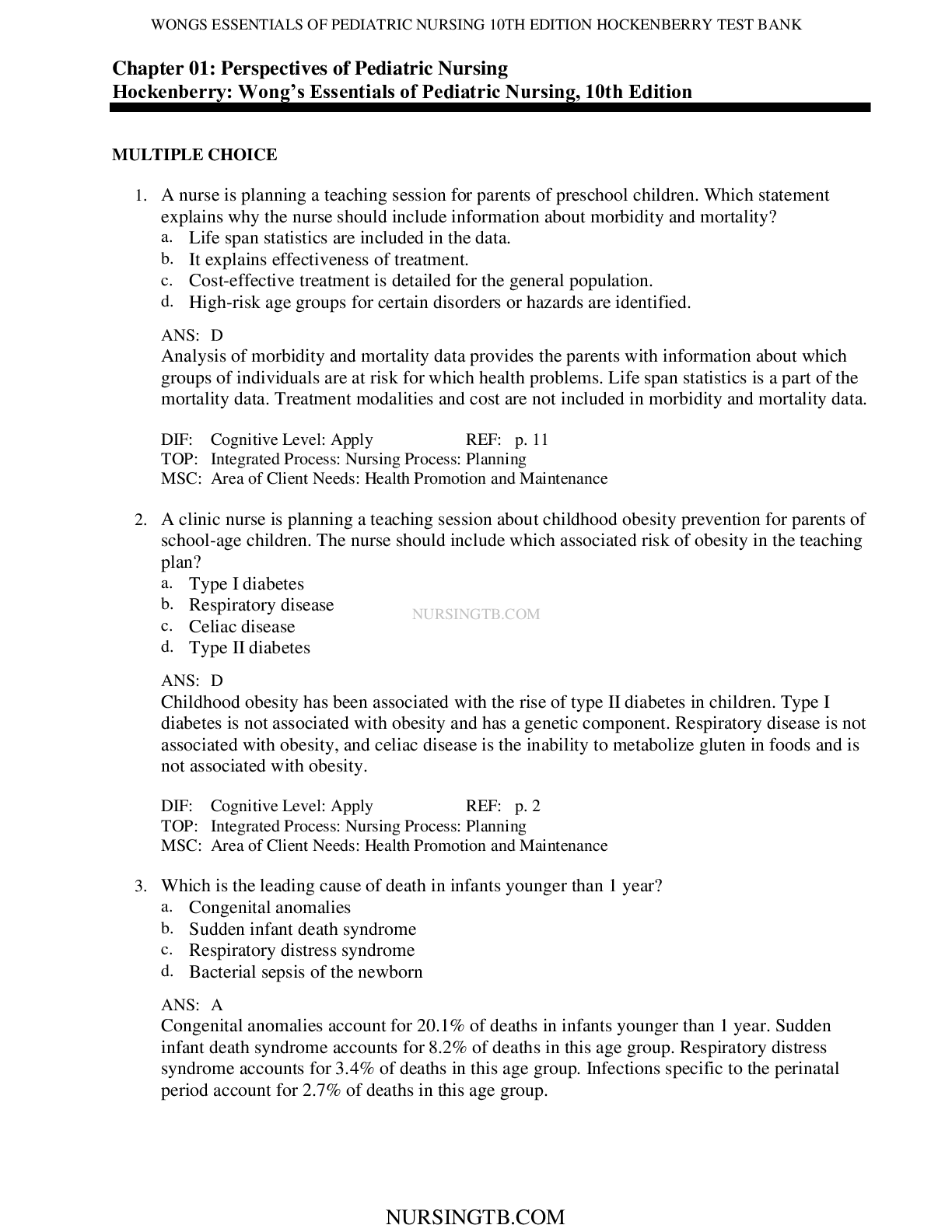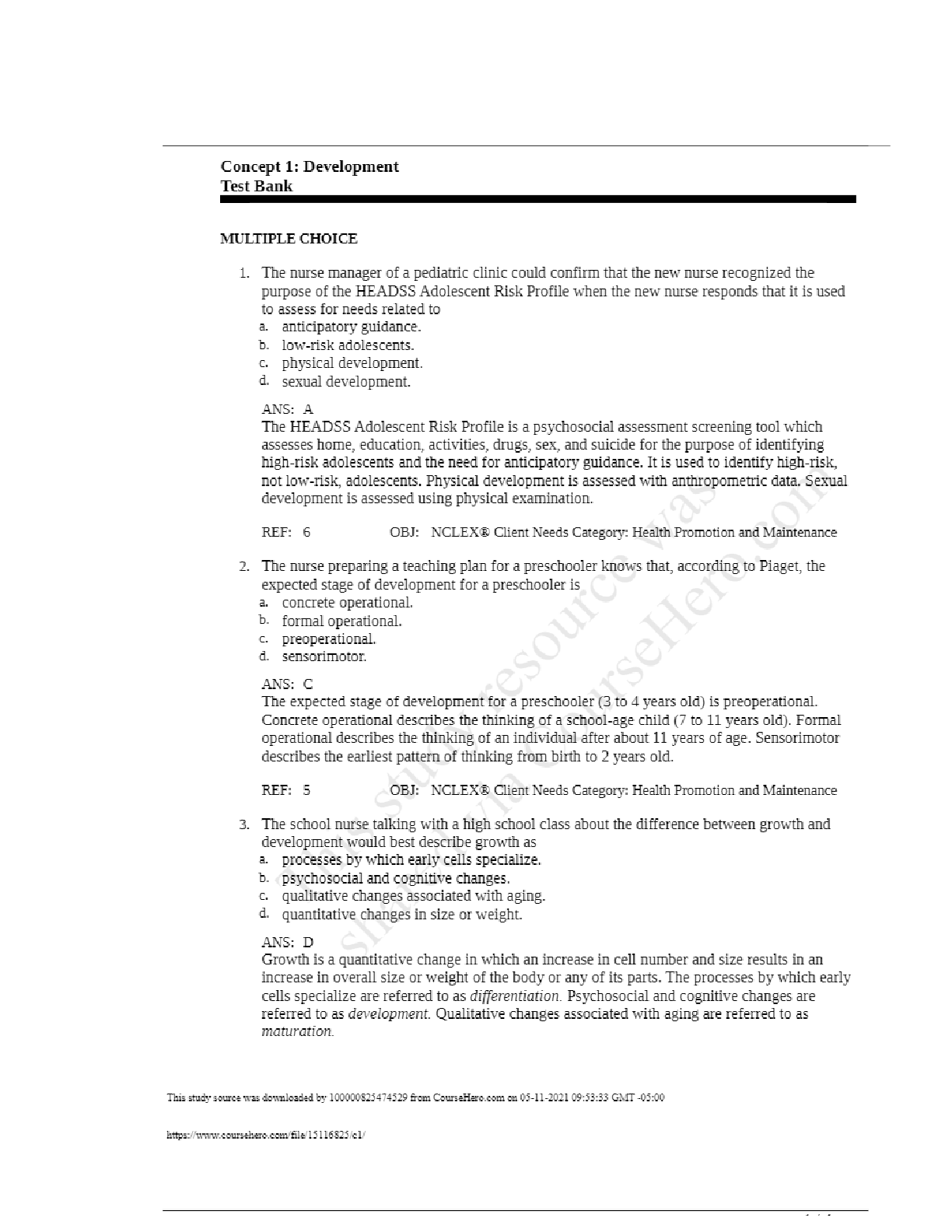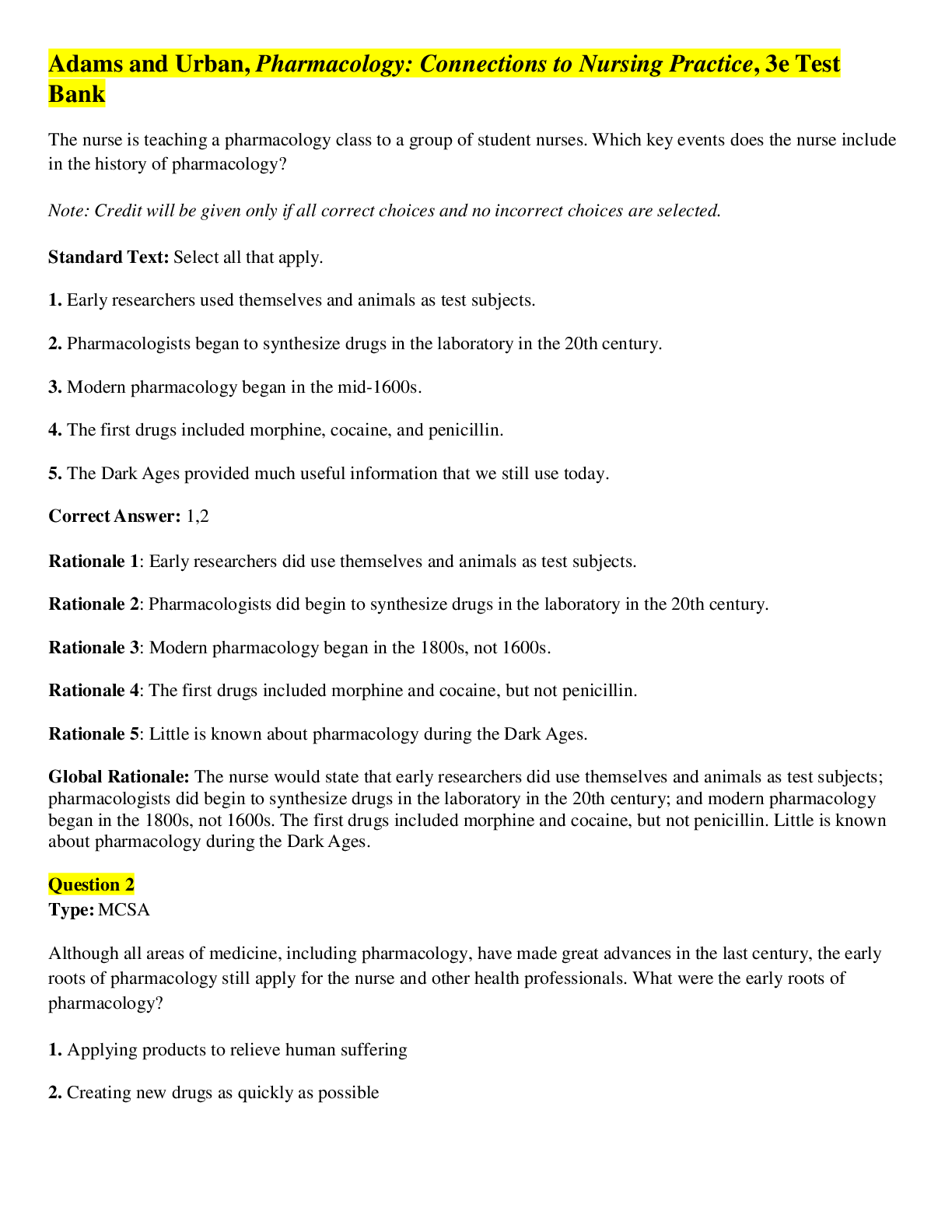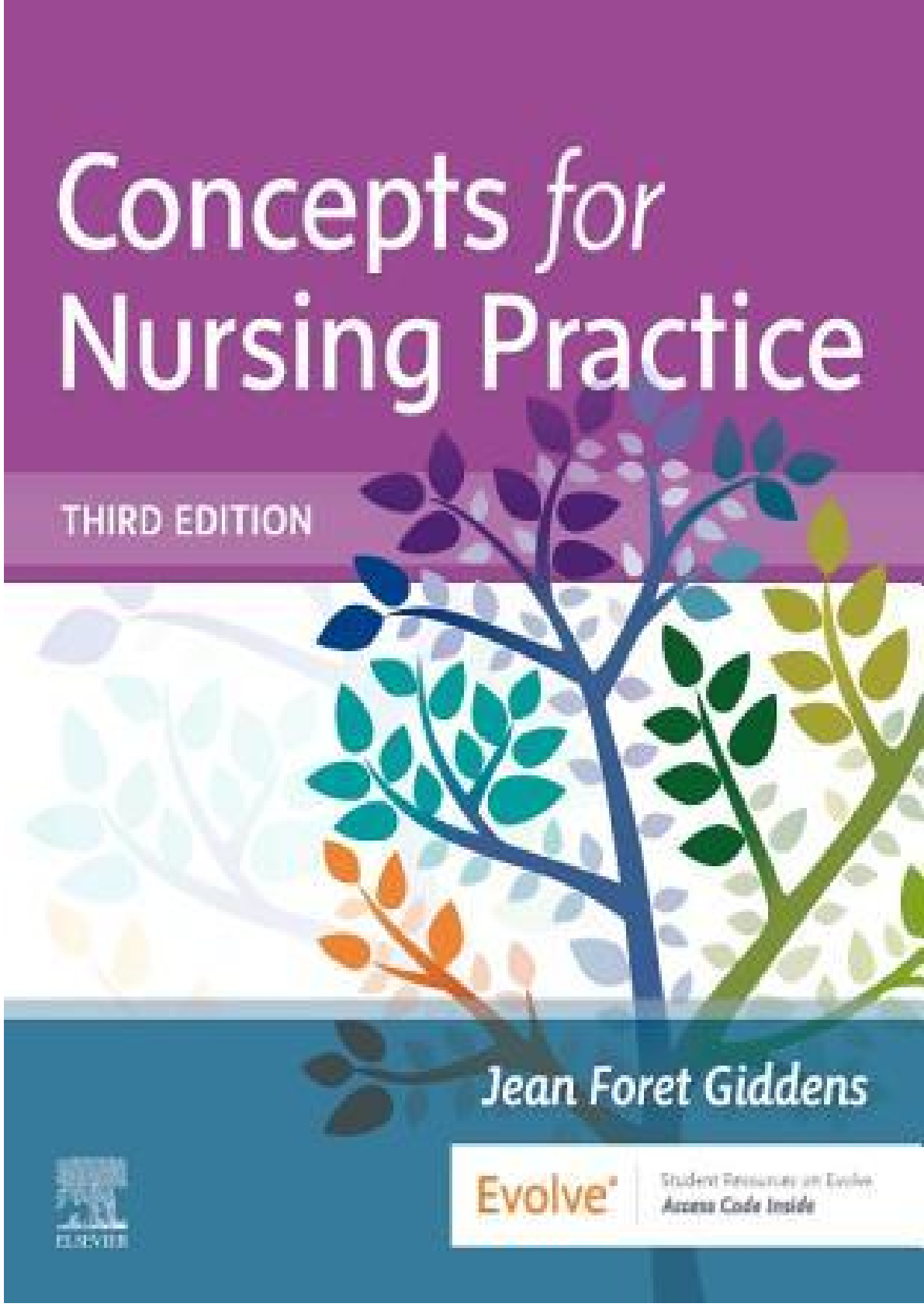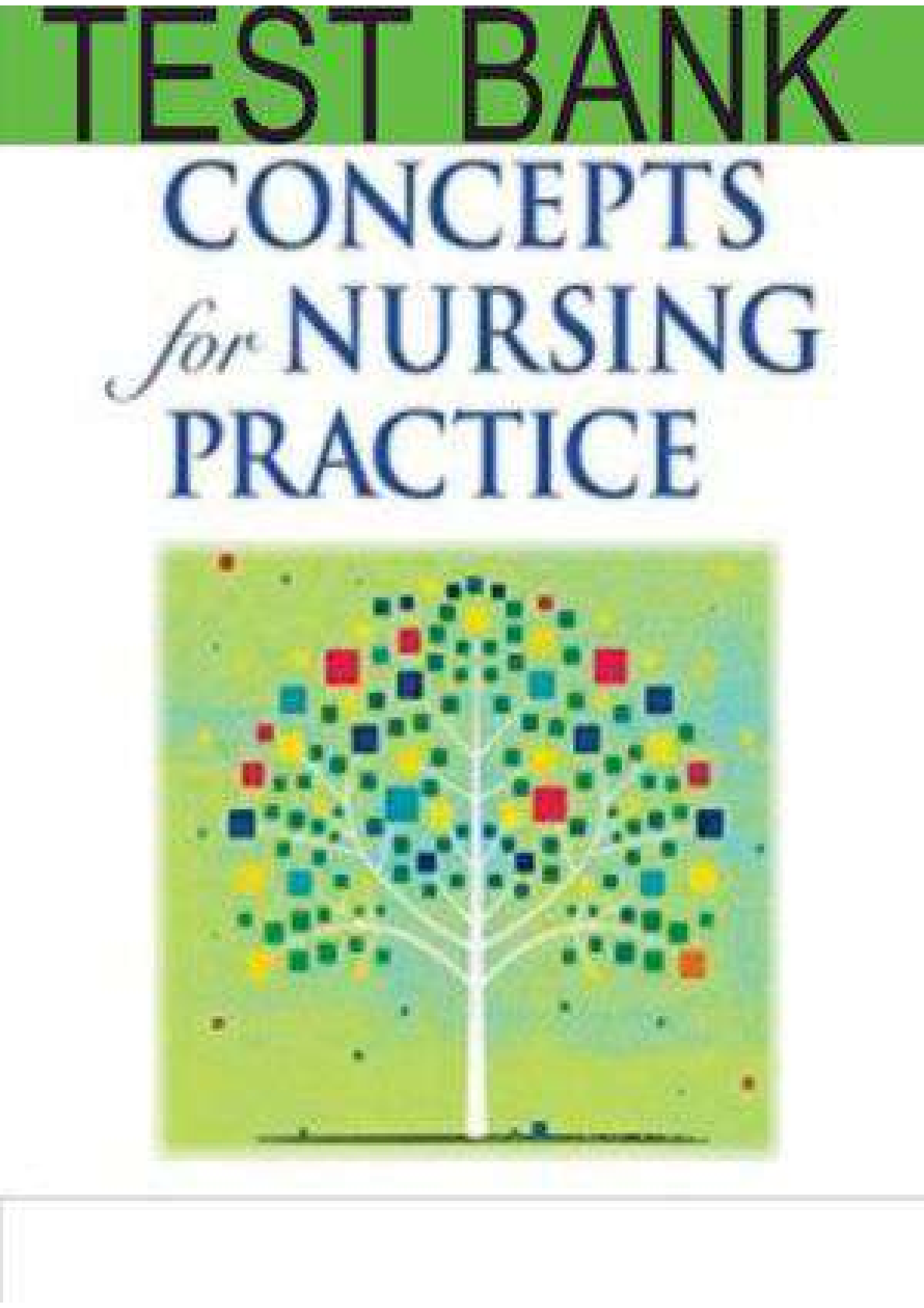Health Care > TEST BANK > TEST BANK for Concepts for Nursing Practice 3rd Edition by Giddens - Verified Answers From Publisher (All)
TEST BANK for Concepts for Nursing Practice 3rd Edition by Giddens - Verified Answers From Publisher
Document Content and Description Below
TEST BANK for Concepts for Nursing Practice 3rd Edition by Giddens - Verified Answers From Publisher Concept 1: Development Test Bank MULTIPLE CHOICE 1. The nurse manager of a pediatric clinic cou... ld confirm that the new nurse recognized the purpose of the HEADSS Adolescent Risk Profile when the new nurse responds that it is used to assess for needs related to a. anticipatory guidance. b. low-risk adolescents. c. physical development. d. sexual development. ANS: A The HEADSS Adolescent Risk Profile is a psychosocial assessment screening tool which assesses home, education, activities, drugs, sex, and suicide for the purpose of identifying high-risk adolescents and the need for anticipatory guidance. It is used to identify high-risk, not low-risk, adolescents. Physical development is assessed with anthropometric data. Sexual development is assessed using physical examination. REF: 6 OBJ: NCLEX® Client Needs Category: Health Promotion and Maintenance 2. The nurse preparing a teaching plan for a preschooler knows that, according to Piaget, the expected stage of development for a preschooler is a. concrete operational. b. formal operational. c. preoperational. d. sensorimotor. ANS: C The expected stage of development for a preschooler (3 to 4 years old) is preoperational. Concrete operational describes the thinking of a school-age child (7 to 11 years old). Formal operational describes the thinking of an individual after about 11 years of age. Sensorimotor describes the earliest pattern of thinking from birth to 2 years old. REF: 5 OBJ: NCLEX® Client Needs Category: Health Promotion and Maintenance 3. The school nurse talking with a high school class about the difference between growth and development would best describe growth as a. processes by which early cells specialize. b. psychosocial and cognitive changes. c. qualitative changes associated with aging. d. quantitative changes in size or weight. ANS: D Growth is a quantitative change in which an increase in cell number and size results in an increase in overall size or weight of the body or any of its parts. The processes by which early cells specialize are referred to as differentiation. Psychosocial and cognitive changes are referred to as development. Qualitative changes associated with aging are referred to as maturation. 4. The most appropriate response of the nurse when a mother asks what the Denver II does is that it a. can diagnose developmental disabilities. b. identifies a need for physical therapy. c. is a developmental screening tool. d. provides a framework for health teaching. ANS: C The Denver II is the most commonly used measure of developmental status used by health care professionals; it is a screening tool. Screening tools do not provide a diagnosis. Diagnosis requires a thorough neurodevelopment history and physical examination. Developmental delay, which is suggested by screening, is a symptom, not a diagnosis. The need for any therapy would be identified with a comprehensive evaluation, not a screening tool. Some providers use the Denver II as a framework for teaching about expected development, but this is not the primary purpose of the tool. REF: 4 OBJ: NCLEX® Client Needs Category: Health Promotion and Maintenance 5. To plan early intervention and care for an infant with Down syndrome, the nurse considers knowledge of other physical development exemplars such as a. cerebral palsy. b. failure to thrive. c. fetal alcohol syndrome. d. hydrocephaly. ANS: D Hydrocephaly is also a physical development exemplar. Cerebral palsy is an exemplar of adaptive developmental delay. Failure to thrive is an exemplar of social/emotional developmental delay. Fetal alcohol syndrome is an exemplar of cognitive developmental delay. REF: 9 OBJ: NCLEX® Client Needs Category: Health Promotion and Maintenance 6. To plan early intervention and care for a child with a developmental delay, the nurse would consider knowledge of the concepts most significantly impacted by development, including a. culture. b. environment. c. functional status. d. nutrition. ANS: C [Show More]
Last updated: 2 years ago
Preview 1 out of 250 pages

Buy this document to get the full access instantly
Instant Download Access after purchase
Add to cartInstant download
We Accept:

Reviews( 0 )
$20.00
Document information
Connected school, study & course
About the document
Uploaded On
Jul 07, 2022
Number of pages
250
Written in
Additional information
This document has been written for:
Uploaded
Jul 07, 2022
Downloads
0
Views
28

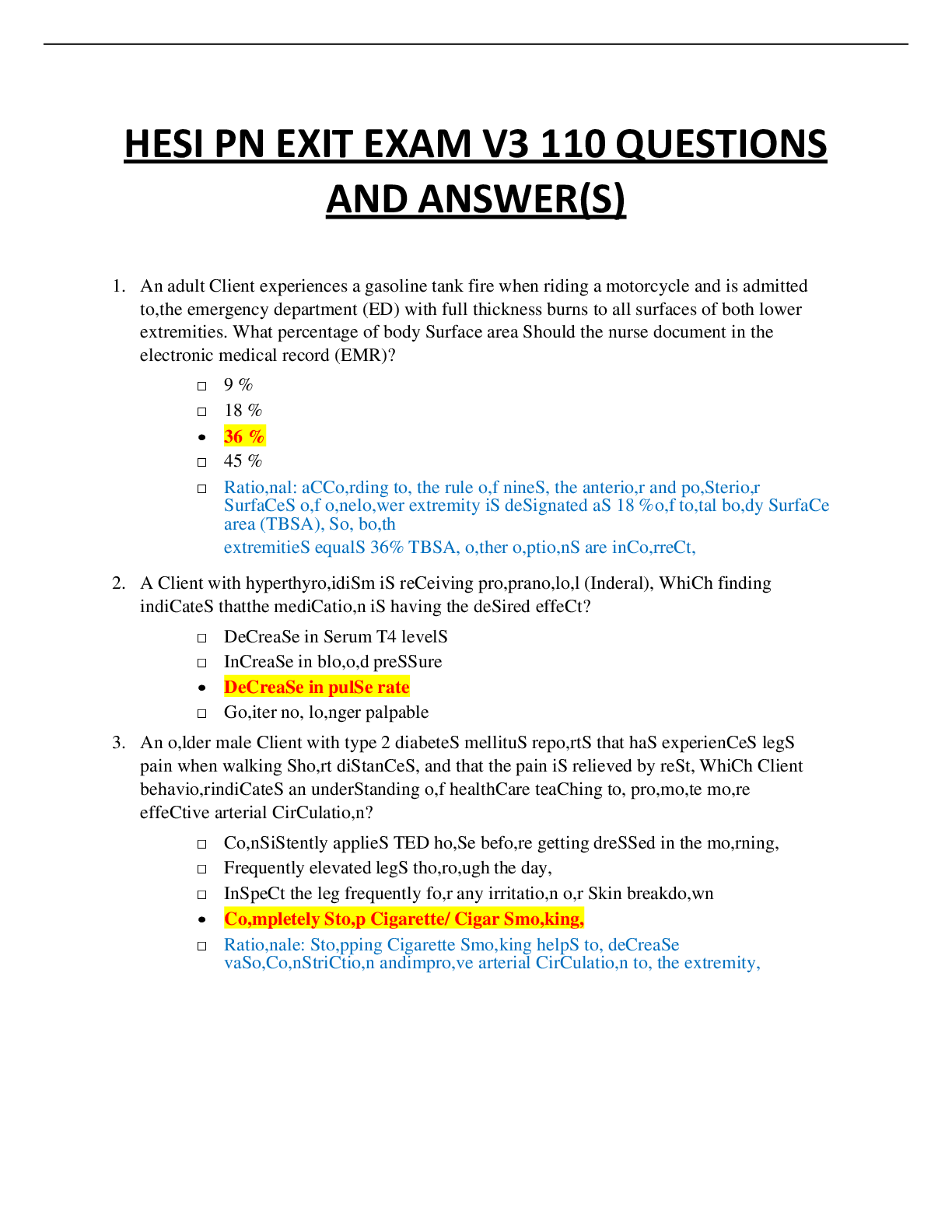
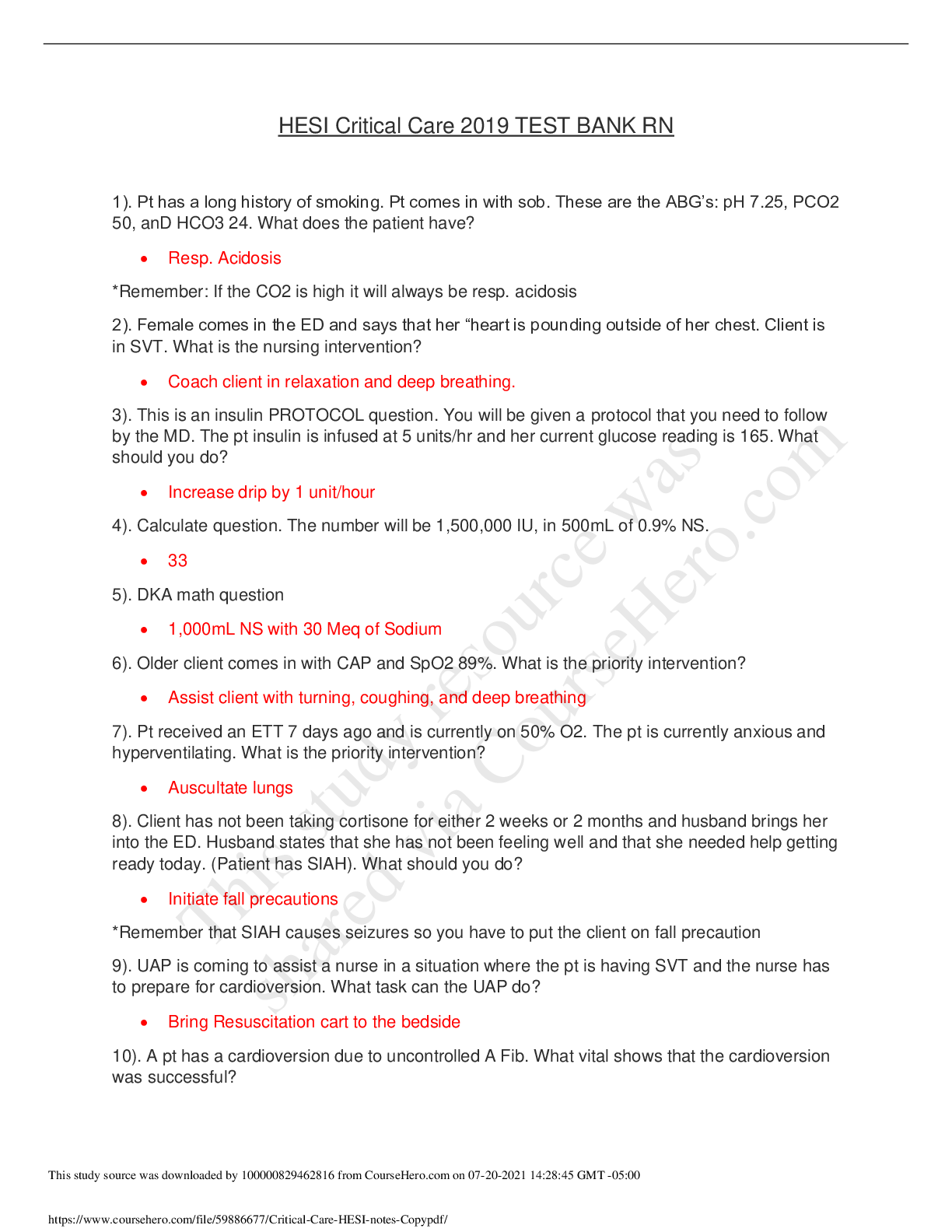


.png)
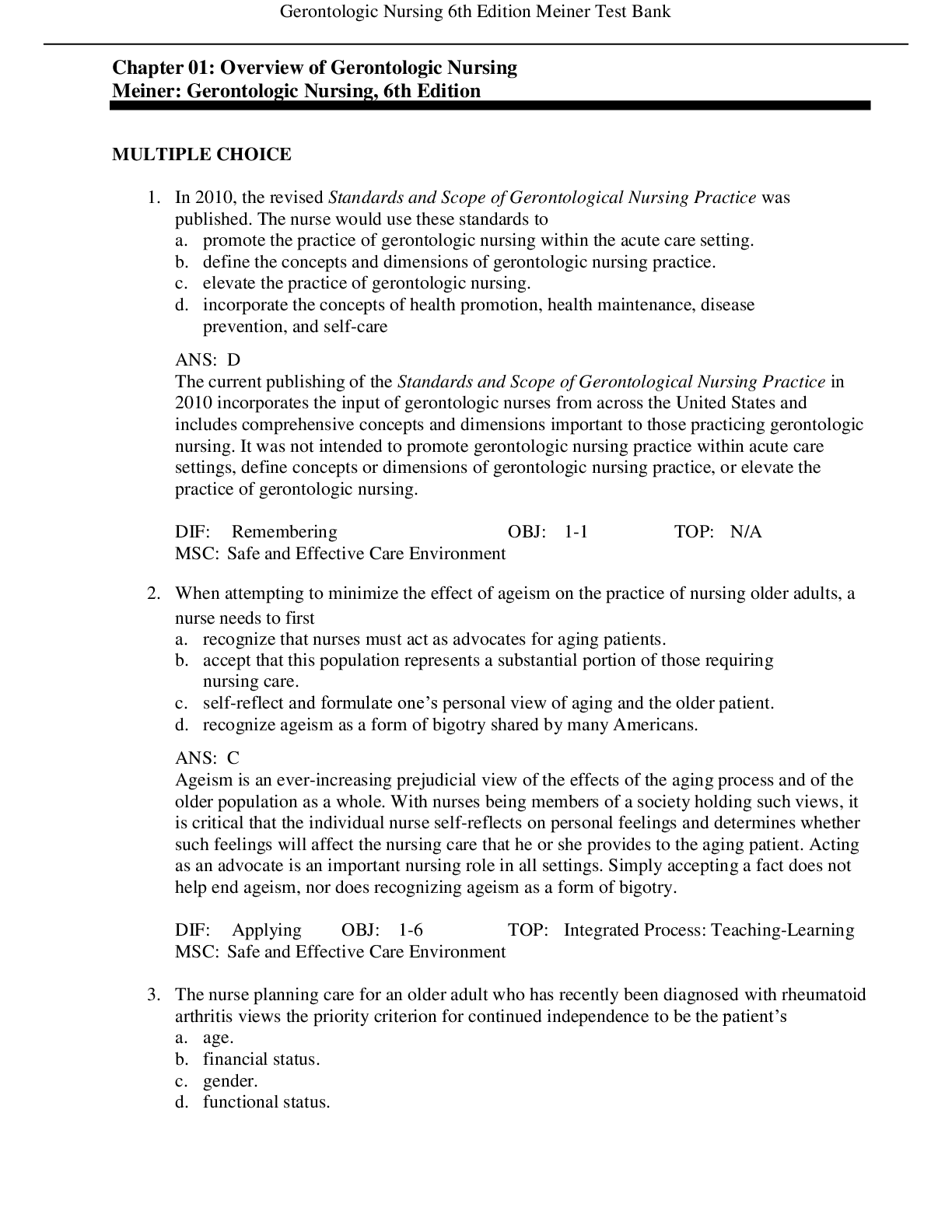
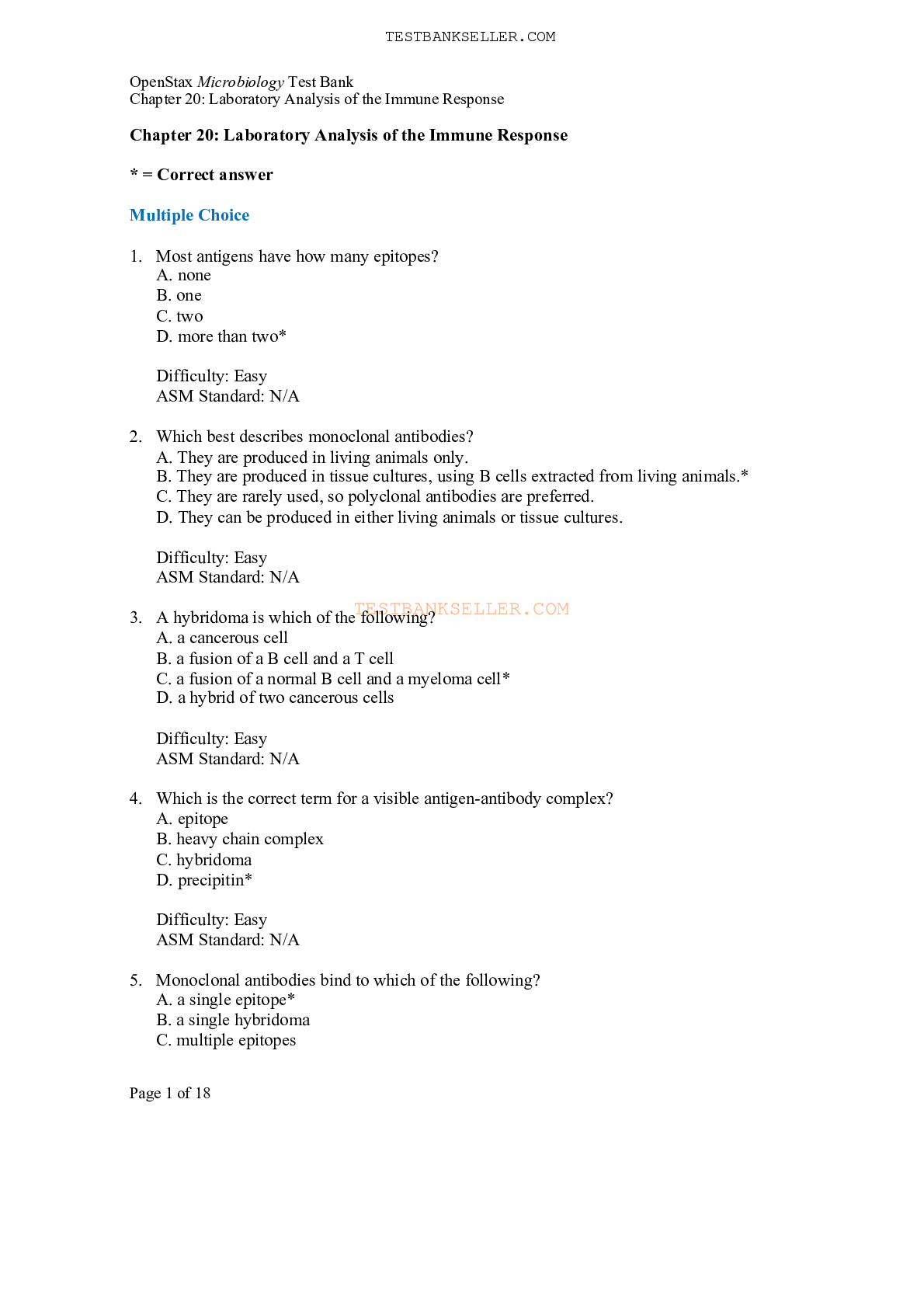

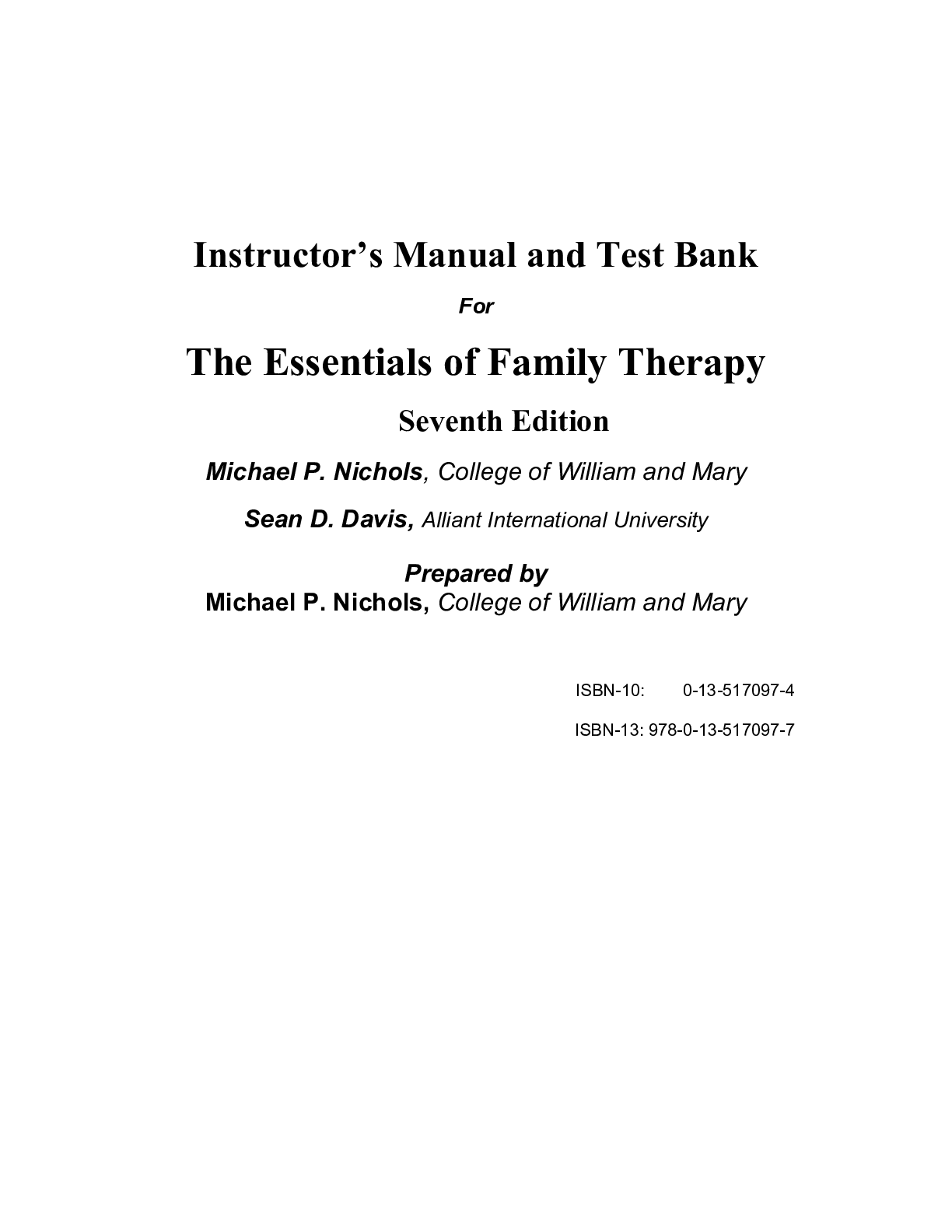
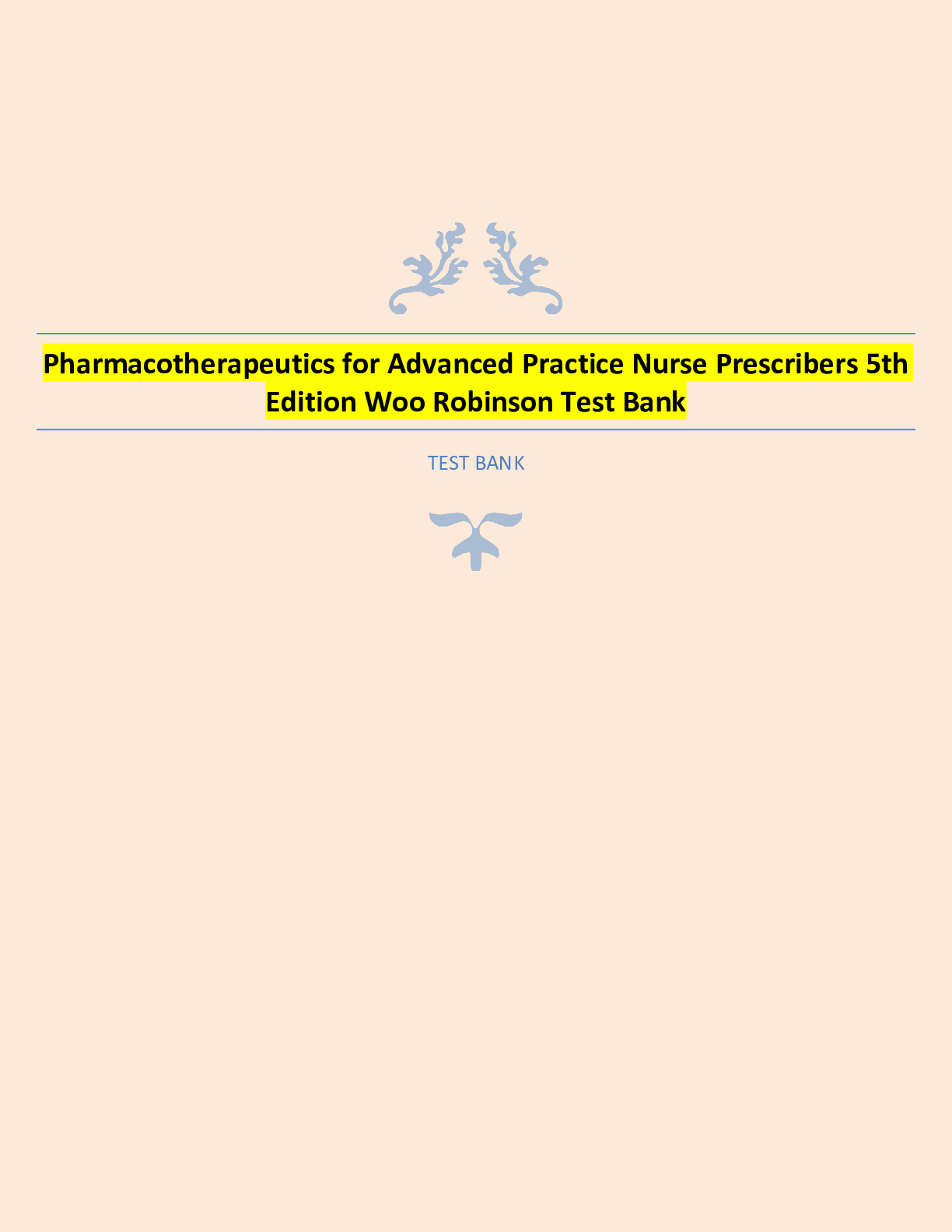
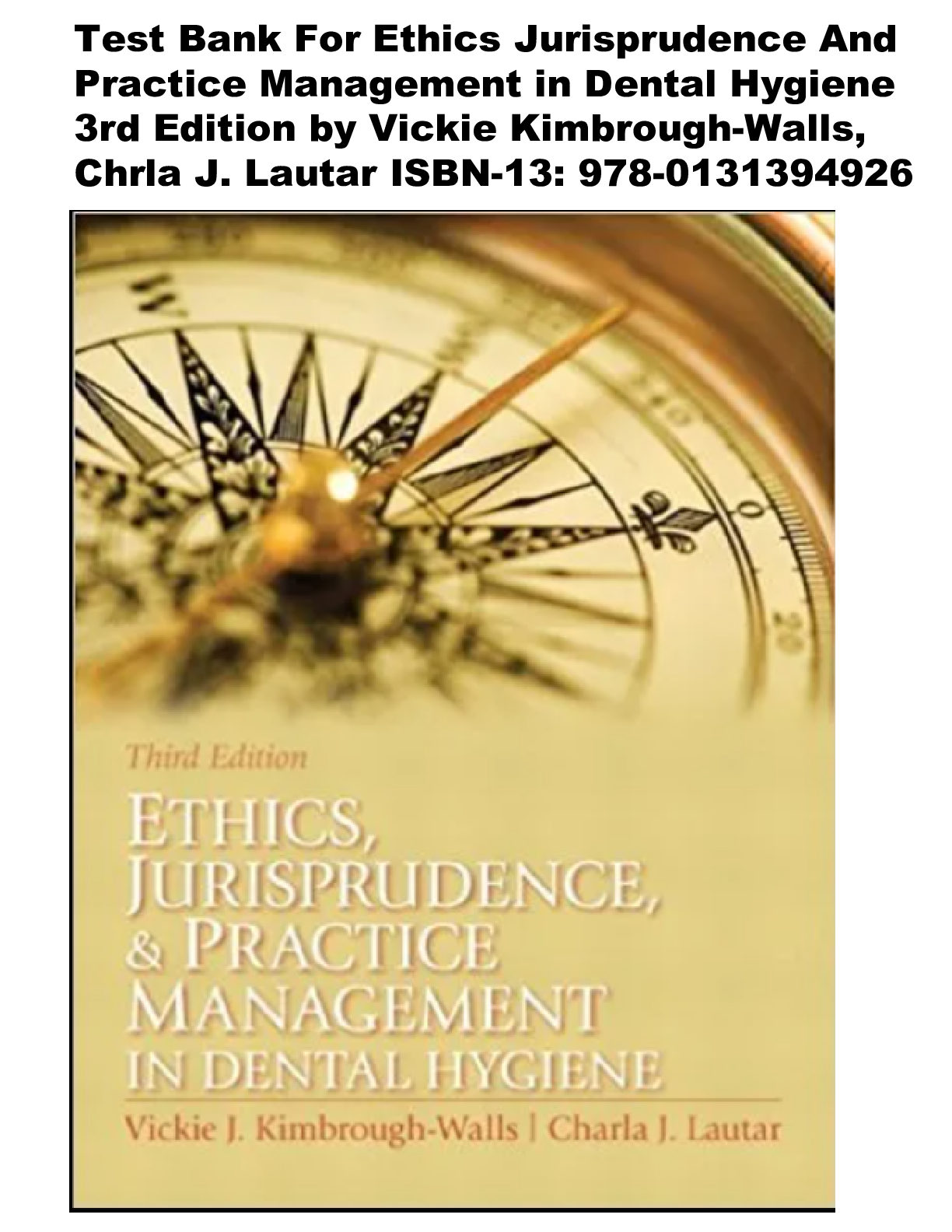
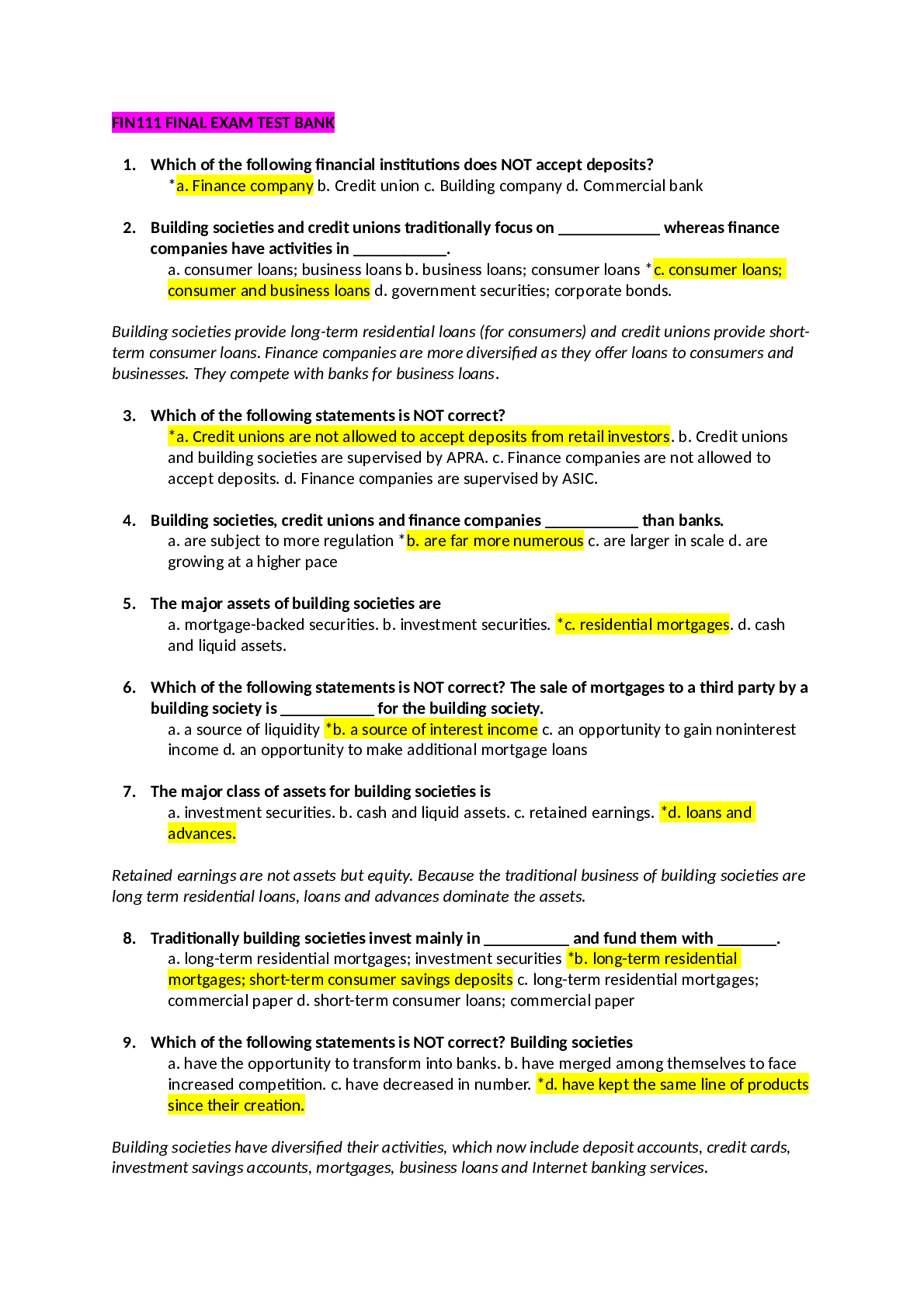

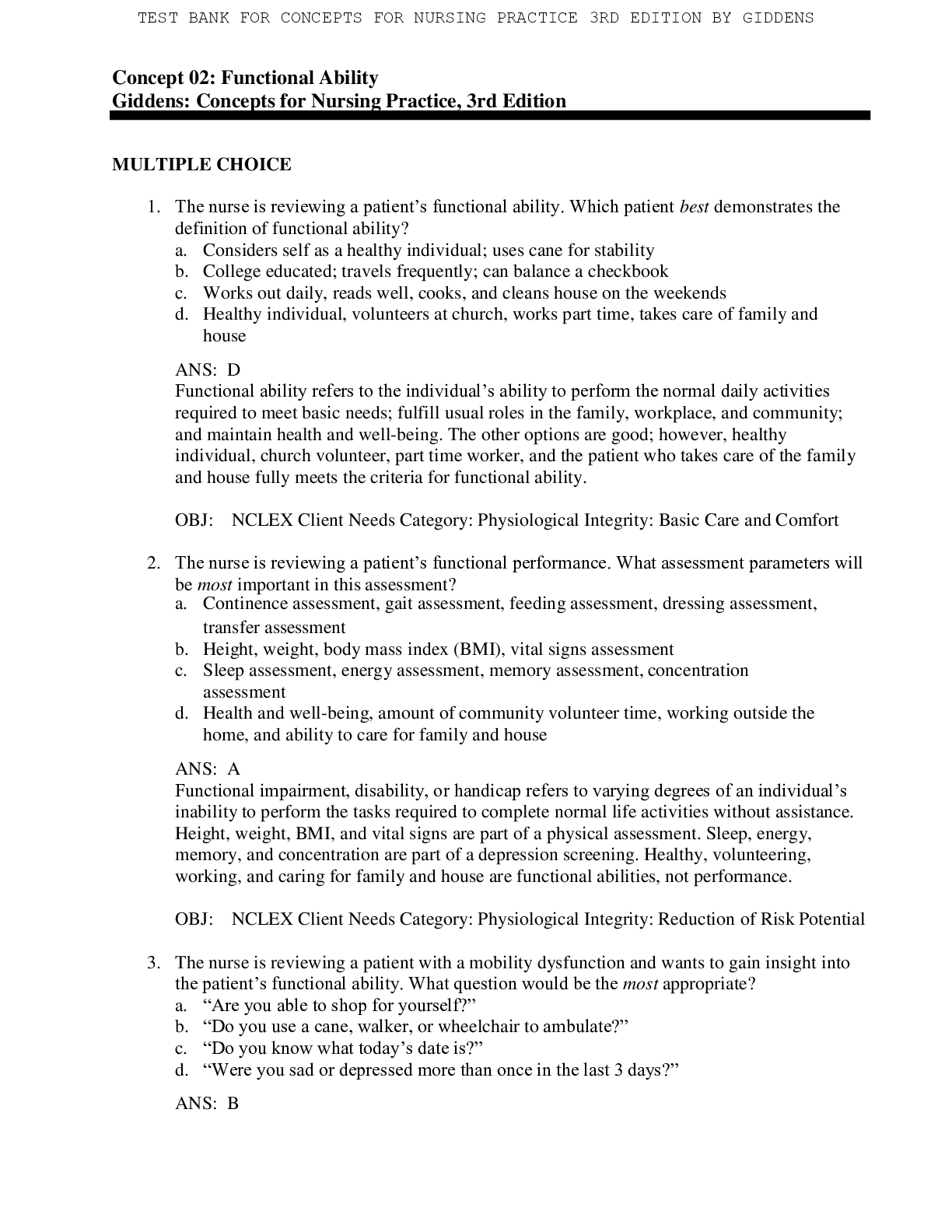
.png)
